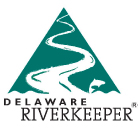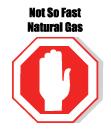Sunday, November 18, 2018
To donate online, click here!
Thank you!
Why it's Important to Stop Toxic Natural Gas Drilling (Hydraulic Fracturing or Fracking)
Fracking involves pumping huge quantities of carcinogenic chemicals, sand, and millions of gallons of fresh water into the ground to fracture the shale rock below and release the natural gas. About 20% of the toxic waste water returns to the surface, laced with radioactivity that occurs in the underground shale, to be stored and disposed of. Accidents and spills routinely allow this waste into the ground water and streams, and there are no proven means to treat this water so that it can be used again for human or animal consumption. The process also has been shown to pollute aquifers and well water, introducing heavy metals, carcinogens, and methane that can actually make tap water flammable.
In addition to water pollution, there is also tremendous air pollution from these well sites, as well as conversion of the land (often scenic wilderness) into sacrificial industrial zones full of roads, 18-wheel truck traffic on the order of hundreds of trucks per day, flowback water containment pits, pipes, condensate tanks, and pipelines. The natural gas industry has proposed drilling 30,000 to 50,000 of these wells in the Delaware River Watershed.
As of September 13, 2017, the DRBC passed a resolution that could allow massive water withdrawals from the Delaware River for fracking, and potential storage, treatment, and disposal of frack wastewater in the basin.
Any fracking or related activities permitted would have potentially tragic consequences for our groundwater, rivers, streams, and human and animal health. In partnership with many other environmental groups, DRN is mounting an all-out campaign to oppose this, and will continue working on behalf of the 15 million people (including the cities of New York and Philadelphia) who get their drinking water from the Delaware.
Even more troubling, scientists have determioned that technology today for water filtration is not able to filter out all of the contaminants that fracking wastewater includes. In Pennsylvania, Chesapeake Energy estimated it takes about 4.5 million gallons of water to frack one gas well (as opposed to traditional gas drilling which used about 100,000 gallons of water per well). Bottom line - we are using and contaminating a tremendous amount of freshwater to frack shale for methane gas, and we don't have a way of treating and disposing of this water or ensuring drinking water supplies are safe when the tap is turned on. The wastewater usually contains high levels of salts, radioactive constituents, carcinogens and nerve damaging agents.
4
Ways You Can Help:
1. Protect
Your Drinking Water. Sign the Petition for a National Ban on
Fracking! Fracking is injecting a massive volume of water, sand,
and chemicals underground at high pressure to break up a rock
formation, allowing oil or gas to flow up the well. Fracking
threatens the air we breathe, the water we drink, the communities we
love and the climate on which we depend. Click here to take action!
2. Attend
a Delaware River Basin Commission Meeting and join others to rally and
express your opposition to fracking in the basin. http://www.state.nj.us/drbc/
3. Watch the documentary, How to Let Go of the World and Love All the Things Climate Can't Change and take action: http://www.howtoletgomovie.com/
This
film from Oscar-Nominated director Josh Fox continues his investigation
of fracking and climate change. The site has many ways you can
take action as well.
4. Learn more about Hydraulic Fracturing and keep up to date on the latest developments at The Delaware Riverkeeper Network site: http://www.delawareriverkeeper.org
The Whole Fracking Enchilada
Violating the bedrock, the atmosphere, and everything in between
by Sandra Steingraber
Published in the September/October 2010 issue of Orion magazine
Will We Sacrifice Our Water for Gas?
Article by Outdoor America Magazine, Spring 2010
Not So Fast Natural Gas, Why Accelerating Risky Drilling Threatens America's Water
Article by Food and Water Watch
Upper Delaware River Endangered River Facts
Marcellus Shale Drillers in Pennsylvania Amass 1435 Violations in 2.5 Years
New Report by Agency Lowers Estimates of Natural Gas in U.S.
By Ian Urbana - NY Times 1/28/12
Ian Urbina of the New York Times does it again:
"Insiders Sound an Alarm Amid a Natural Gas Rush" (Sunday, June 27, 2011).
Urbina uses stunning quotes from hundreds of industry insider emails and data from ten thousand wells to show that shale gas, which we know to be inherently contaminating, is also "inherently unprofitable."
Academy of Natural Sciences peer-reviewed paper incicates that where fracking is conducted, methane levels in drinking water wells were 17 times greater than areas without fracking.
Click here for an article about the paper.









